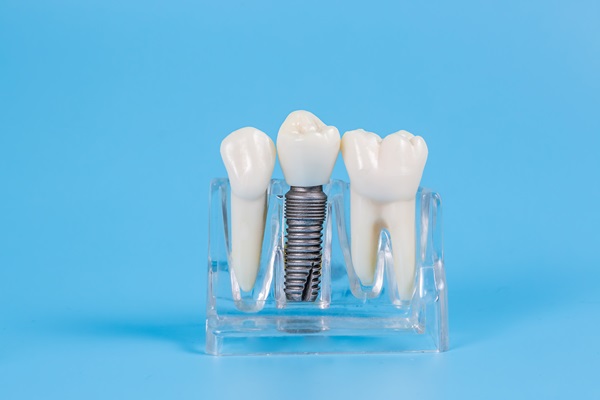How a Tooth Is Prepared to Have a Dental Crown Restoration

When a tooth needs to be restored, a dental crown is usually a great option. Restoring a tooth to good form involves the preparation of the tooth for the placement of the crown. Getting a crown is usually recommended because it can help restore your tooth to its normal shape, function, and look. Read on to find out more about how a tooth is prepared for a crown.
Dental crown procedure
A dental crown is a restoration that is put on a tooth. It can improve the way the tooth looks or make it stronger. It is often used to address a wide range of dental issues. Preparing a tooth for a dental crown often requires two visits to the dental office. And it usually involves several steps.
First visit
At the first visit, the dentist will examine the tooth and prepare it for the dental crown. This might involve taking X-rays, which will be used to examine the tooth’s roots and the surrounding bone. If there is a risk of infection, injury to the tooth’s pulp, or tooth decay, a root canal may be performed. Before the process of making the dental restoration begins, the dentist will numb the tooth and the gum tissue around it.
Next, the tooth will be reshaped to make room for the dental crown. The amount that will be removed depends on the type of crown chosen. But if a large portion or area of the tooth is missing, the dentist will have to use filling material to build up the tooth. This will help ensure it will support the crown.
Once the tooth is reshaped, the dentist will use a paste to make an impression of the tooth receiving the crown. They will also take impressions of the teeth below and above it. This is crucial to ensure that the crown does not affect the bite. The impressions will be sent to a dental laboratory, where the dental crown will be fabricated. This often takes about two to three weeks. A patient will be required to wear a temporary crown to protect the prepared tooth while the dental crown is being manufactured.
Second visit
At the second visit, the dental provider will remove the temporary crown. They will also check the new crown’s fit, shape, and color. If everything is okay, the dentist will permanently cement the crown in place. A numbing agent may be used to ensure the patient is as comfortable as possible.
Dental crown care
Two dental visits are usually required to prepare a tooth for a dental crown restoration. The first visit entails examining and preparing the tooth. The second visit involves the placement of the permanent custom-made crown. It is important to note that even though a tooth is crowned, it still needs to be protected from gum disease and decay.
It is vital to continue following good oral hygiene practices. These include brushing, flossing, and rinsing with an antibacterial mouthwash. To prevent damage to your crown, also avoid chewing hard foods or objects. If you have any questions about the dental crown procedure, talk to your dentist today.
Are you considering getting a dental crown in the Norwood area? Get more information at https://www.bdentalspa.com.
Check out what others are saying about our dental services on Yelp: Dental Crowns and Dental Bridges in Norwood, NJ.
Related Posts
Curious about dental crowns? Read on to learn more about this type of restoration. If a dentist determines that you need a dental crown, there are several reasons why they may make that suggestion. A crown is a common dental restoration to cover and protect a tooth with compromised structural integrity. Their natural appearance and…
Two popular choices for restoring damaged teeth are same-day crowns and traditional crowns. Both of these treatment options are effective for improving your oral health and the appearance of your smile. However, there are differences in the placement process. The following guide outlines the benefits and limitations of each type of dental crown to help…
CEREC® crowns tackle dental health and cosmetic problems, often at the same time. This type of crown is popular for its convenience. The computer-aided design and manufacture of CEREC crowns reduces fabrication time to a few short hours. This makes it possible for a patient to walk into a dental office with a toothache and…
A porcelain fixed bridge is outstanding as a dental restoration that can replicate the appearance and function of natural teeth. The dental bridge is an option to consider when seeking to replace one or multiple teeth that are damaged or lost. A dentist can design the porcelain fixed bridge to mimic the look of natural…
